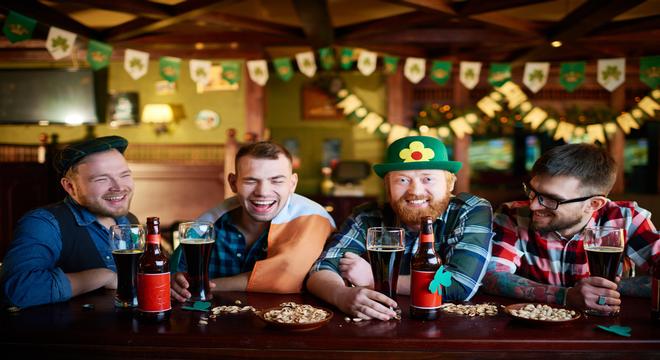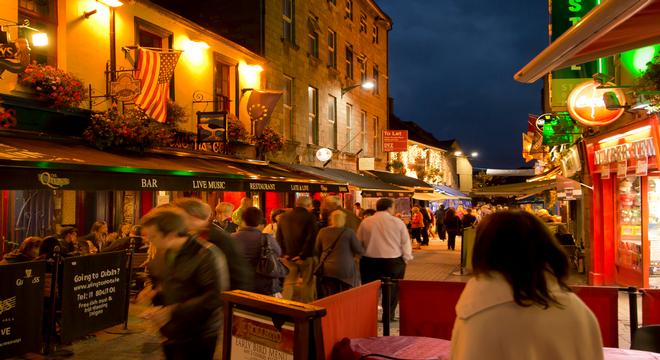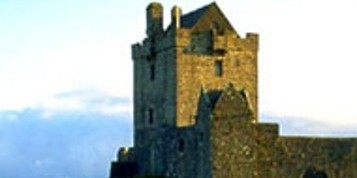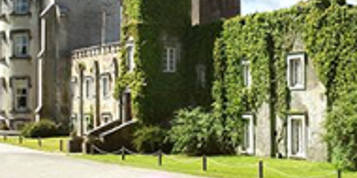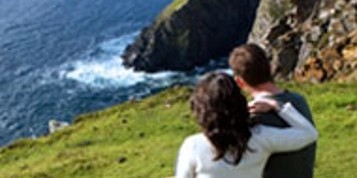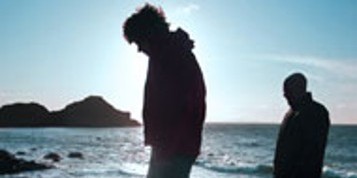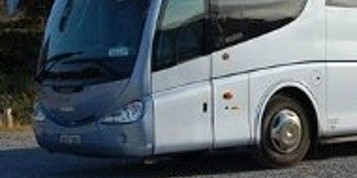IRISH PUBS
Irish Pubs & Folklore 7 Nights
Get a real flavor and understanding of Irish folklore and enjoy some craic and music with this tour. At musical evenings in Brazen Head Pub, you will hear some of the best genuine traditional music still being played.
15% Off ALL self-drive vacations! Book by July 15th
Book ANY self-drive vacation by July 15th and enjoy 15% off! Don't miss out - explore more for less!
*CIE tours and Knitting tours not included.
-V4.png)
As everyone knows the Irish pub scene is world-renowned for its hospitality and friendliness as well as being the watering holes chosen by like-minded souls in search of quality conversation, humor, music, and food. Alongside all of this is the fact that the Irish publican has been known to serve the odd pint or two.
While all around Ireland great watering holes are to be found it has to be said that certain locations are simply a cut above the rest in terms of pubs and restaurants. To this end, the Irish Pub & Folk Tour does its very best to direct guests to the best of what Ireland’s social scene has to offer: those special social centers renowned for their atmosphere, food and superb traditional music
As your journey takes you between these towns in the east, south, and west of Ireland, you will have to the opportunity to catch a glimpse of some of the most beautiful & picturesque landscapes that Ireland has to offer. This combined with the intriguing history and culture you will be exposed to on your trip will undoubtedly make for an unforgettable vacation.
This tour will provide you with a real insight into both the country of Ireland, its people and their way of life.
Overnights for this tour:
- Kilkenny for 2 nights
- Killarney, County Kerry for 2 nights
- County Clare for 1 night
- Dublin/Galway for 2 nights
Included in your price:
- Free calls to your personal Ireland vacation specialist
- 7 nights accommodation on a B&B basis
Car Rental:
Rental of a economy-size car. Included with your car is all compulsory insurances - Collision Damage Waiver insurance (CDW with an excess/deductible), theft protection insurance, location fee of €30, Road fund tax, sales tax at 13.5%, unlimited free mileage, third party liability insurance, 24 hour peace of mind breakdown cover.
Occupancy:
Prices are per person based on 2 persons in each room with full Irish breakfast and taxes included. A single supplement will apply to rooms and car rental in the case of single occupancy.
Currency:
Please note that we charge in Euros (€). Prices in other currencies are for indication only and subject to fluctuation.
Accommodation & Car
| B&Bs | 3*Hotels | 4*Hotels | Combination | |
|---|---|---|---|---|
| Jan-Mar & Nov-Dec | €539 | €712 | €1,168 | €763 |
| April & October | €543 | € |
Day 1: Dublin to Kilkenny
After collecting your rental car your first stop is the National Stud and Japanese Gardens where a Horse Museum tracing the history of the horse in Ireland using artifacts, illustrations and text is located. In fact, the winner of the 2003 Californian ‘Breeders Cup Mile’ race is a National Stud horse, the 3rd in the last 9 years. The Japanese Gardens are situated in the grounds of the Stud Farm and were created between 1906 and 1910. They are planned to symbolize the 'Life of Man' from the cradle to the grave.
On to Kilkenny - Long renowned as Ireland’s Medieval Capital, the city’s origins date back more than 1,500 years. Characterized by beautifully restored old buildings, Kilkenny City is small and compact enough to explore on foot, yet full of fascinating, historical buildings. Kilkenny Castle is a 12th-century castle remodeled in Victorian times and set in extensive parklands. Also in Kilkenny is Saint Canice's Cathedral, the second-longest of Ireland's medieval cathedrals. Built on the site of an earlier church, the major portion of the work that produced the beautiful Gothic structure was carried out in the middle of the 13th-century.
Day 2: While in Kilkenny
There are a number of exceptional day trips to be experienced from Kilkenny and all within easy reach. These include a trip to The Rock of Cashel and Cahir Castle in the neighboring County of Tipperary. Cashel was once the seat of the Kings of Munster and capital of this southern province. The Rock of Cashel, which rears above the plain, dominated the land routes southwards. Kings of Ireland, as well as Munster, came to the Rock of Cashel and St. Patrick is known to have preached on the rock.
Cahir Castle, once an important stronghold of the powerful Butler family, retains its impressive keep, tower and much of its original defensive structure and is one of Ireland’s largest and best-preserved castles. You can then travel on to Waterford where you will see the Waterford Crystal factory. An alternate route would be to visit the county of Wexford to the southeast. This would allow visits to the Irish National Heritage Park, the 13th-century Tintern Abbey, Hook Lighthouse, Dunbrody Abbey, the Kennedy Homestead, the ancestral home of JFK and finally the Dunbrody Famine Ship.
An interactive exhibition re-enacts life on the Dunbrody as she carried her passengers from New Ross to the US and Canada 150 years ago. Visitors will experience life on board an emigrant ship as they explore the authentically recreated decks of the ship. The original Dunbrody was a three-masted barque built in Quebec, Canada, for the Graves family of New Ross, Co. Wexford in 1845.
Day 3: Kilkenny to Killarney
Your first stop today is the Rock of Cashel in County Tipperary. Cashel was once the seat of the Kings of Munster and capital of this southern province. The Rock, which rears above the plain, dominated the land routes southwards. Kings of Ireland, as well as Munster, came to this spot and St. Patrick is known to have preached on the rock and converted the local King, Aenghus, here in the 5th Century. Just 10 miles further on stop is Cahir Castle, once an important stronghold of the powerful Butler family, which retains its impressive keep, tower and much of its original defensive structure. It is one of Ireland’s largest and best-preserved castles.
For those who wish to take a slightly longer route to Killarney, Blarney Castle awaits. Onwards to Killarney. With its three famous lakes and majestic mountain ranges, Killarney has been the inspiration of poets and painters over many centuries. The Killarney National Park is internationally renowned both for its scenic beauty and scientific interest. There are many walks and trails around Killarney including a 2-hour tourist trail around the town itself. You will also have a chance to visit Ross Castle, the Gap of Dunloe or simply take a stroll through the streets of this quaint town to enjoy the great pubs and enjoy the traditional Irish music on offer.
Day 4: While in Killarney
There are numerous day trips to be had while based in Killarney. The two most scenic drives in the area include the Ring of Kerry and Dingle Peninsula Driving routes, two of Ireland’s most picturesque drives. The Ring of Kerry includes visits to colorful villages, ancient heritage sites dotted around the peninsula including Skellig Michael just off the Kerry coast and Staigue Fort. The Dingle Peninsula has more interesting antiquities, historic sites, and varied mountain scenery than any other part of Ireland.
The main town Dingle is the most westerly in Europe and attracts large numbers of visitors each year, many of whom come to learn the Irish language in the surrounding Irish speaking district. Also in the area are An Dún Beag Promontory Fort from 800 BC as well as the Blasket Islands and Gallarus Oratory. Gallarus Oratory was built between the seventh and eighth century and is the best-preserved early Christian church in Ireland.
On to Brandon Creek from where legend has it that St. Brendan discovered the North American continent in the 6th century. Alternative routes include day trips to Blarney Castle and the Titanic Train in Cork or the northern route to the Cliffs of Moher and the Burren region of County Clare including Bunratty Castle. If you wish to stay closer to Killarney, take a wonderful walk or pony and trap through the Gap of Dunloe, returning to Killarney by boat across the Lakes of Killarney.
Day 5: Killarney to Clare
Leaving Killarney your first stop will be the Village of Adare in County Limerick. Adare is regarded by many a seasoned traveler as Ireland’s prettiest village with its charming thatched cottages, manicured public park, and ancient church. From Adare continue along the N20 towards Limerick City of ‘Angelas Ashes’ fame and home to King Johns Castle. Shortly after this, you arrive at Bunratty Castle. Built-in 1425, this majestic castle was restored in 1954 to its former medieval splendor. Within the grounds of the Castle is Bunratty Folk Park where 19th-century Irish life is vividly recreated. Continuing on to the magnificent ‘Cliffs of Moher’. The majestic Cliffs of Moher are without doubt one of Ireland’s most spectacular sights and overlook the Atlantic Ocean on the coast of West Clare. You then arrive at the village of Doolin. Doolin is world-famous for its wealth of Irish folk music and in recent years has been attracting crowds to spontaneous sessions in any one of its excellent pubs.
Day 6: Clare to Galway
After a short drive north, you reach Galway City, the ‘City of the Tribes’ also known as Ireland’s Cultural and festival capital. Galway and in particular, the Quays area of the city center will captivate you, particularly in the evening time. Other sites in Galway include Ireland’s largest medieval parish church, the Collegiate Church of St Nicholas of Myra dating back to 1320. Christopher Columbus reputedly worshipped in this church in 1477. Also nearby are Galway Cathedral, the Spanish Arch and Eyre Square. If using Galway as a base will enable you to spend time in the Connemara Region as well as the Aran Islands.
Day 7: Galway to Dublin
Today’s journey to Dublin takes in some of Ireland’s most historic landmarks. First of these is the ancient monastic settlement at Clonmacnoise. This is an early Christian site founded by Saint Ciaran in the 6th century on the banks of the River Shannon and includes the ruins of a cathedral, eight, two round towers, three high crosses and a large collection of early Christian grave slabs. From here, we travel either to Dublin or take a slight detour to the megalithic tombs of Newgrange. One of the great wonders of the ancient world, Newgrange is older than Stonehenge, Mycenae or even the Pyramids of Egypt and is foremost among the passage-tombs of Europe.
From here, we travel south to Dublin City. Dublin city center is a compact area, with all points of interest being easily accessible on foot. As a result, you will find a large number of walking tours available, the most popular of which include the “Historical Walking Tour” and the “Literary Pub Crawl”. You may of course wish to visit many of the sights in your own time either on foot or with the Hop-On-Hop-Off bus service that stops at all of the major attractions including Dublin Castle, Trinity Castle & the Book of Kells, Kilmainham Gaol, the National Museum of Ireland and the Guinness Storehouse to name just a few.
Also whilst in Dublin visit the Jeanie Johnston Tall ship & Famine Museum situated at Custom House Quay in the city center. The Jeanie Johnston Tall ship is an accurate replica of the original ship which sailed between Tralee, Co. Kerry, and North America between 1847 and 1855. A tour of the ship enables visitors to understand what a daunting experience it was for the millions who left for North America during the famine, many never to return to the homeland.
Day 8: Homeward Bound
Although it’s sad to say, this morning it is time to leave for the airport unless of course, you have decided you’re not quite ready to leave our little Emerald Isle quite yet and have planned post-night stays in Belfast or Dublin.
15% Off ALL self-drive vacations! Book by July 15th
Book ANY self-drive vacation by July 15th and enjoy 15% off! Don't miss out - explore more for less!
*CIE tours and Knitting tours not included.
-V4.png)
Accommodation & Car
| B&Bs | 3*Hotels | 4*Hotels | Combination | |
|---|---|---|---|---|
| Jan-Mar & Nov-Dec | €840 | €1,090 | €1,440 | €1,170 |
| April & October | €840 | €1,280 | €1,570 | €1,290 |
| May-June | €950 | €1,390 | €1,840 | €1,450 |
| July & September | €1,050 | €1,490 | €1,940 | €1,560 |
| August | €1,050 | €1,490 | €1,940 | €1,560 |
- Please note prices are per person based on 2 persons in each room with full Irish breakfast and taxes included
- The Combination package includes 3 Nights in 3*** Hotels, 2 nights in Luxury Manor House Hotels & 2 Nights in our hand-picked B&B's
- Children Sharing with 2 adults (aged 2-11) pay 40% of the Adult option
- Children under the age of 2 are free when sharing with 2 Adults
- Your Accommodation & Car Rental Package rate includes an Economy class car eg., Opel Corsa or Fiat Punto
- Included with your car is all compulsory insurances - Collision Damage Waiver insurance (CDW with an excess/deductible), theft protection insurance, location fee of €30, Road fund tax, sales tax at 13.5%, unlimited free mileage, third party liability insurance, 24 hour peace of mind break down cover.
